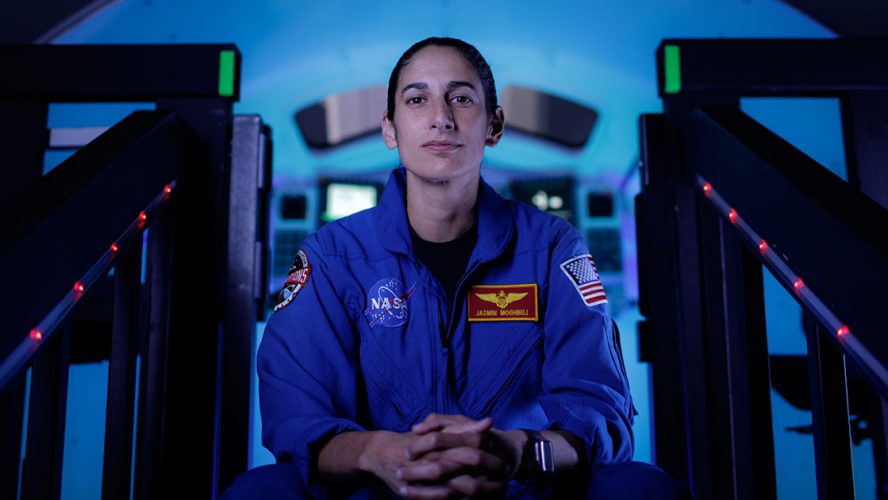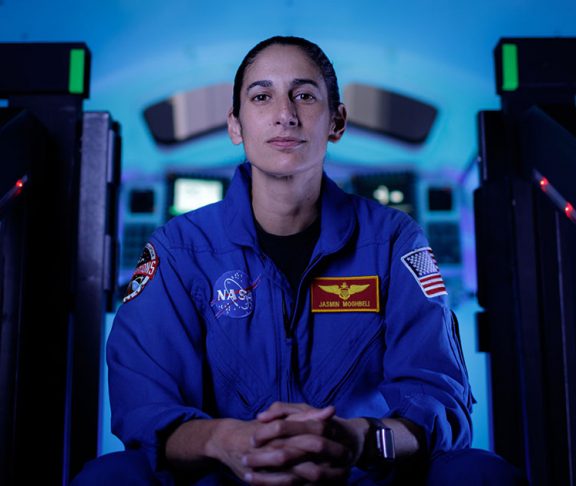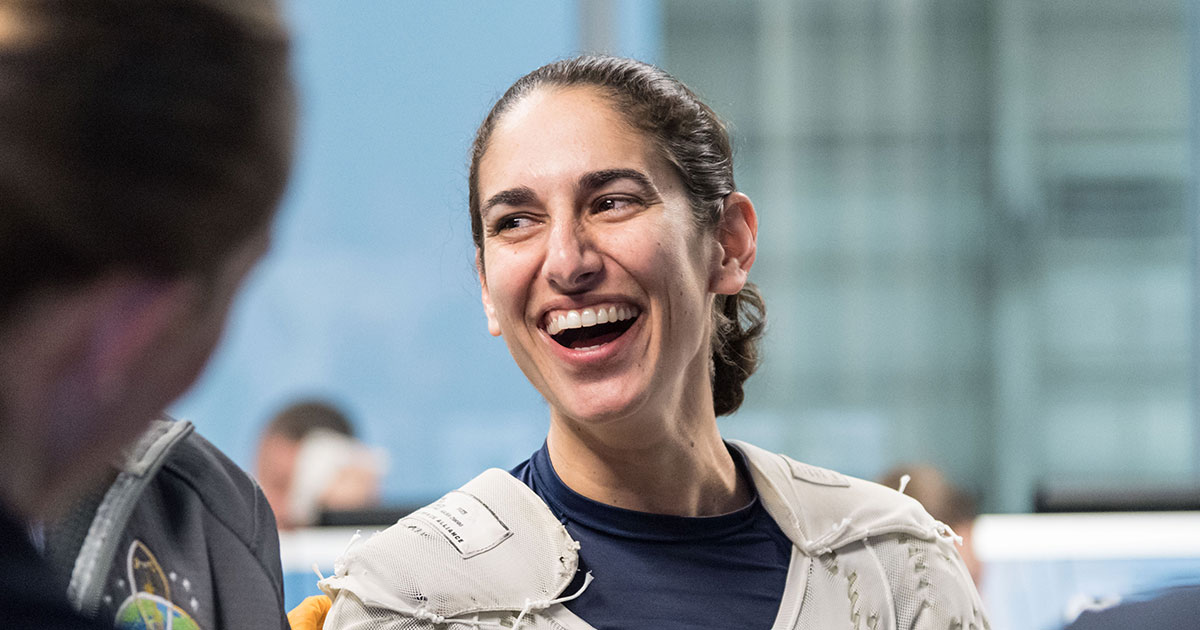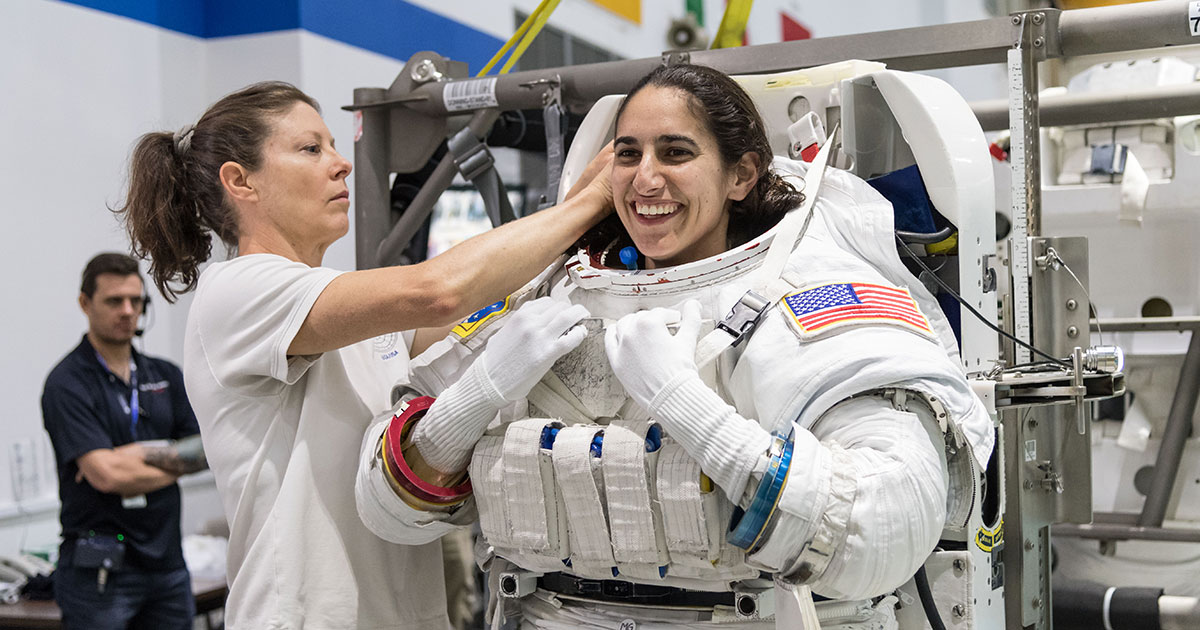Plenty of kids say they want to become an astronaut when they grow up, but their dream isn’t realized.
For 37-year-old Jasmin Moghbeli, it did. Moghbeli has been a NASA astronaut since August 2017. Before that, she was a U.S. Marine Corps test pilot. According to NASA, she has more than 150 combat missions and 2,000 hours of time in the air in more than 25 different aircraft to her name.
“As a kid, I was just naturally drawn to science and math,” Moghbeli said. “In college, I especially loved physics. I kept asking, ‘How do things work?’ and ‘Why do they work this way?’”
“Throughout junior high and high school, I participated in afterschool STEM-driven programs,” she added. “I think all of those things drew me into it.”
Defying the odds
Of course, making it big in STEM is no easy feat for multiple reasons. For women, that can be especially true. The National Girls Collaborative Project notes that although women comprise half of the workforce educated in the United States, they make up just 28 percent of the science and engineering segment.
Moghbeli emphasized that equal representation in STEM is important. “When the younger generation looks and sees all men in a room and you’re sitting there and you’re a little girl, how does that make you feel? Does that make you feel like, ‘Hey, I can be there too’? Maybe not. At this point, because we’re still underrepresented, it takes an active, conscious effort to incorporate more diversity — whether it be in gender or in different ethnicities, or whatever it is, into those fields.
“And I do feel hopeful that we’ll get to the point when we no longer need to make that active effort because we have become a main part of the industry,” she added.
Reflecting on the past and future
Working in STEM comes with other challenges, including an ability to overcome failure. Moghbeli wishes she knew how normal it is to fall short of expectations when she first started out.
“I think it’s really important looking back to say, ‘Hey, don’t let those failures stop you from continuing to pursue your passion in this field,’” she said. “Those failures are a sign that you are pushing yourself, challenging yourself, and trying to do things that are really worthwhile and really difficult.”
Being steadfast paid off. The field of space exploration is ever-evolving, and Moghbeli described current projects as “extremely exciting.”
“Even from the time I got selected to now, about three years later, there are so many new programs and spacecraft being worked on,” she explained.
She noted that NASA is aiming to land humans on the moon in 2024 and use their learnings from that mission to go to Mars next. “How cool is that, right?” she said.
Growing up
Moghbeli credited her parents with giving her the confidence to pursue her dream. “I was very lucky growing up,” Moghbeli said. “I never questioned whether or not I could do something because I was a girl. Having that at a young age made me believe I could do anything,” adding that her teachers were similarly encouraging. She applauded all the adults helping inspire future generations in STEM. “Thank you to all the parents and educators out there that are working to help kids of all backgrounds and genders realize that they, too, can be in these fields and do these things.”
Another piece of advice she would’ve given her younger self is to take up space and raise her voice. “I think for me personally, one of the hardest things at times was feeling like I belonged. I think I often had the tendency to question if I was good enough to be in a room or to speak up,” Moghbeli explained. “When I was younger, that held me back a lot more. I think that was probably the most difficult thing for me was realizing, ‘Hey, I have just as much to contribute in this room as anyone else does. And I have just as much right to be here.’”



